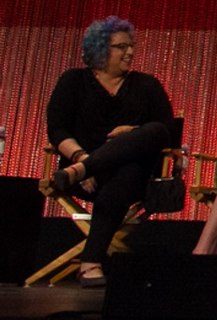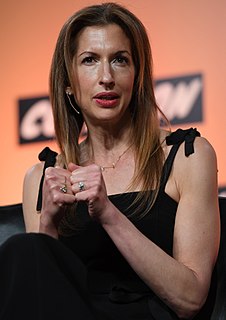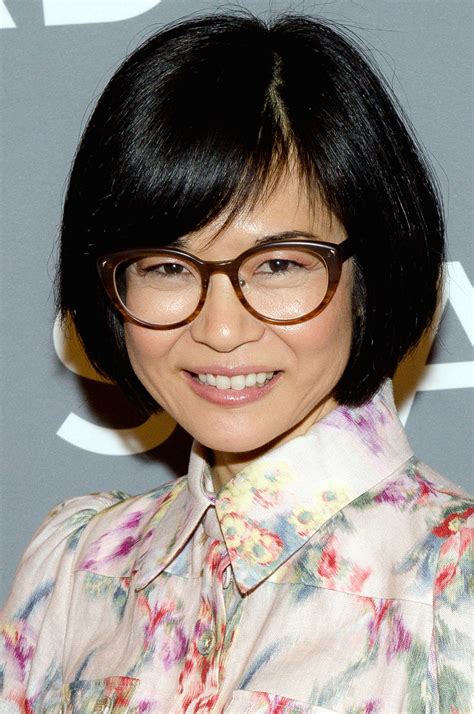A Quote by Jenji Kohan
If you go to a network and say, "I wanna do prison stories about black women and Latino women and old women," you're not gonna make a sale. But, if you've got this blonde girl going to prison, you can get in there, and then you can tell all the stories. I just thought it was a terrific gateway drug into all the things I wanted to get into.
Related Quotes
I don't think that there's a target audience at all. These stories were in circulation. The stories were told by men, told in the marketplace by men, but also behind doors by women, but there's no real record of this. It's likely they were told by women to children in their interior rooms. The story could be a negative story, they could be presented as a, "Watch out! Women will get round you, do things to you, weave you in their toils." It could be buried in it an old cautionary story about women and their wiles.
We need more female directors, we also need men to step up and identify with female characters and stories about women. We don't want to create a ghetto where women have to do movies about women. To assume stories about women need to be told by a woman isn't necessarily true, just as stories about men don't need a male director.
In my memoir, I wanted to introduce American women to Iranian women and our lives. I'm not from the highest echelons of society, nor the lowest. I'm a woman who is a lawyer, who is a professor at a university, who won the Nobel Peace Prize. At the same time, I cook. And even when I'm about to go to prison, one of the first things I do is to make enough food and put it in the fridge for my family.
I do get a little disheartened when you hear about how many girls get discouraged to not pursue a career in the sciences, and I feel like seeing women that are portrayed in this way - and beyond that, just three dimensional, complicated women - those are always going to be the stories that I gravitate to most.
We can see, from California to New York, from Maine to Florida, Seattle to New Mexico - everywhere there are women's groups. Everywhere there are women who have gotten together to examine global warming, and women who have gotten together to prepare each other for single parenting - there are women who have come together to be supportive to those whose mates are in prison, male or female, partners are in prison. All sorts of gatherings of women. I mean, I'm just celebrating my 80th year on this planet, and I look back 50 years ago and there was nothing like that.




































